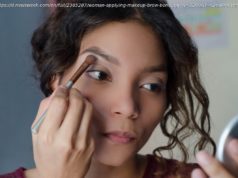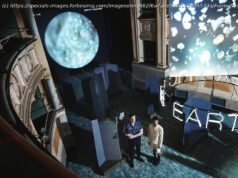‘Save Valentines’ and ‘Consensual Greetings’ bring different visions.
In the four-plus months since the New York Times and The New Yorker broke news of sexual harassment and assault allegations against Harvey Weinstein, the #MeToo and #TimesUp movements have led to a discernible shift in our larger conversations about sex, romance and relationships.
The change has already had a direct impact on the ad industry. Two very different projects from agency creatives make clear that it also affects day-to-day matters like that most innocuous of annual holidays, Valentine’s Day.
London-based creative duo Connor Stephen and Charlie Ditchfield created “ Save Valentines, ” which asks, “How does a #MeToo-conscious human proceed?”
The covers of these “Post-Weinstein” cards feature such reliable holiday messages as “Forever Yours” and “Be My Valentine.” Inside the cards, however, viewers are confronted with awkward lines like “Or until such a time as you no longer welcome my affections. Which is completely within your rights as an individual,” and “Which is not to suggest in any way that I would possess you or that you are anything less than a human being with your own will and autonomy,” respectively.
Donations from sales of the cards go to Safeline, a U. K. sexual abuse prevention charity.
HuffPost U. K. described the “ disappointingly predictable” project as “the perfect example of male privilege” and implied that it made light of a very serious problem. Its creators disagree, claiming that “the cards came out of the conviction that it is indeed an important issue.”
“We’re hoping they provoke discussion amongst a more casual—and let’s face it, mostly male—audience,” Stephen and Ditchfield told Adweek. “We’re looking to provoke engagement with this important issue through humour; by lampooning those idiots attempting to trivialize #MeToo with the suggestion that ‘things have gone too far.’”
They decided Valentine’s Day was a perfect time to address the issue, given the preponderance of cards with messages that “seem increasingly out of date, and even unacceptable.”
“As advertising creatives, we realize the power of humor and a bit of attitude in reaching an audience that’s otherwise indifferent to a message,” they added.
Associate creative director Kassandra Pollard’s “ Consensual Greetings ” project approaches the subject from a very different perspective. Pollard emphasized that while they might seem humorous, the Consensual Greetings cards are not a joke.
The inside of each card confirms as much via a small line reading, “Just like sexual harassment, this card isn’t a joke. Stop doing and saying inappropriate things that add to the problem.”
“To me, it was important to make it clear that these cards are sending a serious message and not making light of women’s situations,” Pollard told Adweek.
As with Stephen and Ditchfield’s project, the fronts of these cards deliver Valentine’s Day cliches like “Roses are red, violets are blue” and “I need you.” When the cards are opened, however, the lines are flipped on their head and revealed to be addressing instances of harassment in the work place, with messages such as “I don’t want to sleep with you” and “…to stop hitting on me.”
Profits from sales of these cards will be donated to the Times Up Legal Defense Fund .
The Consensual Greetings project was something of an eye-opening experience for Pollard.
She explained that, while she has had her share of “uncomfortable interactions with male colleagues,” she was initially concerned that she “wouldn’t have enough material to create a whole collection.”
“I had to recall all the uncomfortable moments I had shoved out of my head. The types of moments millions of women brush off in the workplace, and beyond, just to get through the day. But, when I did, I realized I had plenty to say,” she told Adweek. “In a way, these cards are my #MeToo moments. They’re things I could’ve/should’ve said to harassers in the past.”
Pollard worked with illustrators Laurène Boglio and Jill DeHaan, who donated their time and effort to the project.
“I love my job. But I love it even more when I can use it to contribute to a cause I believe in,” DeHaan said. “I feel honored to have had the opportunity to contribute to this project. Because it could help give a voice to those who need it while also being a wake up call to those who might be causing harm.”
Share
http://adweek.it/2BrDESj copy
Erik Oster
@ErikDOster
Erik Oster is a staff writer for Adweek.
Patrick Coffee
@PatrickCoffee
Patrick Coffee is a senior editor for Adweek.






